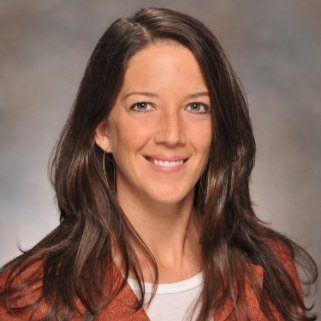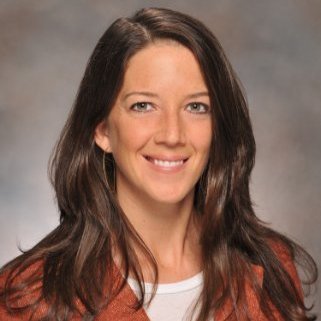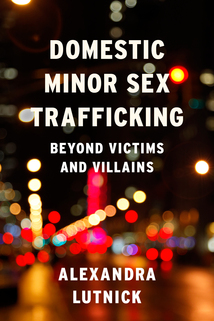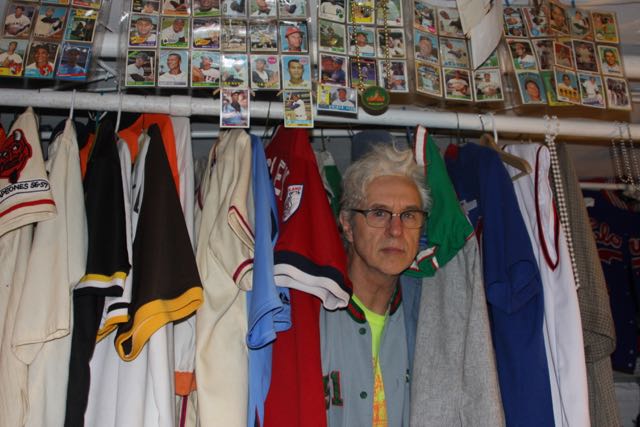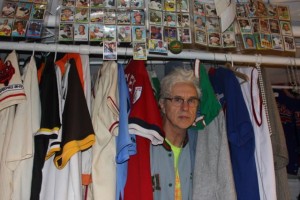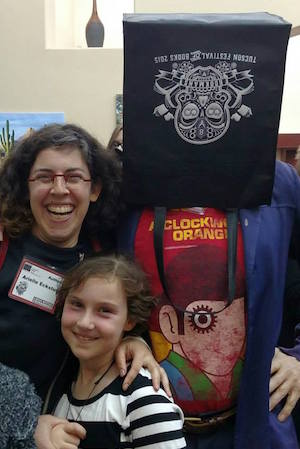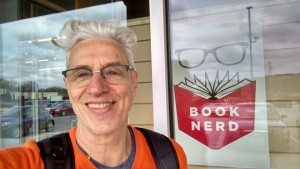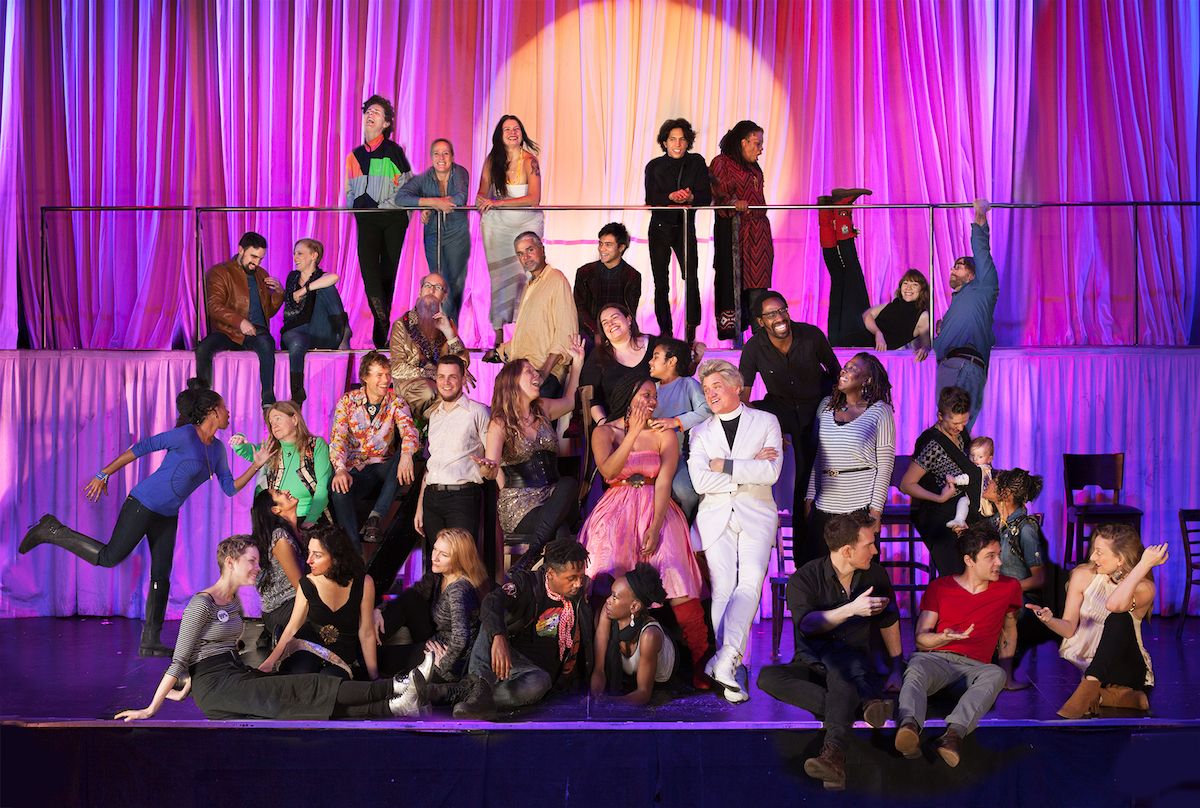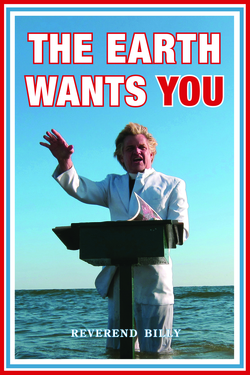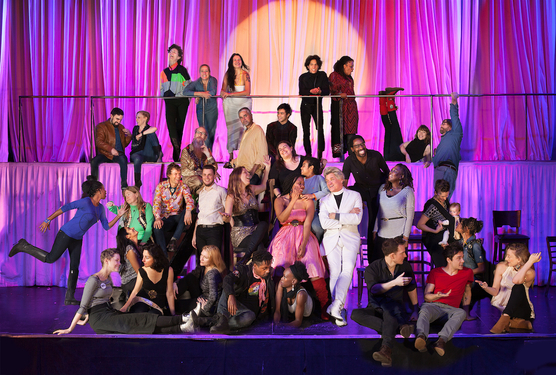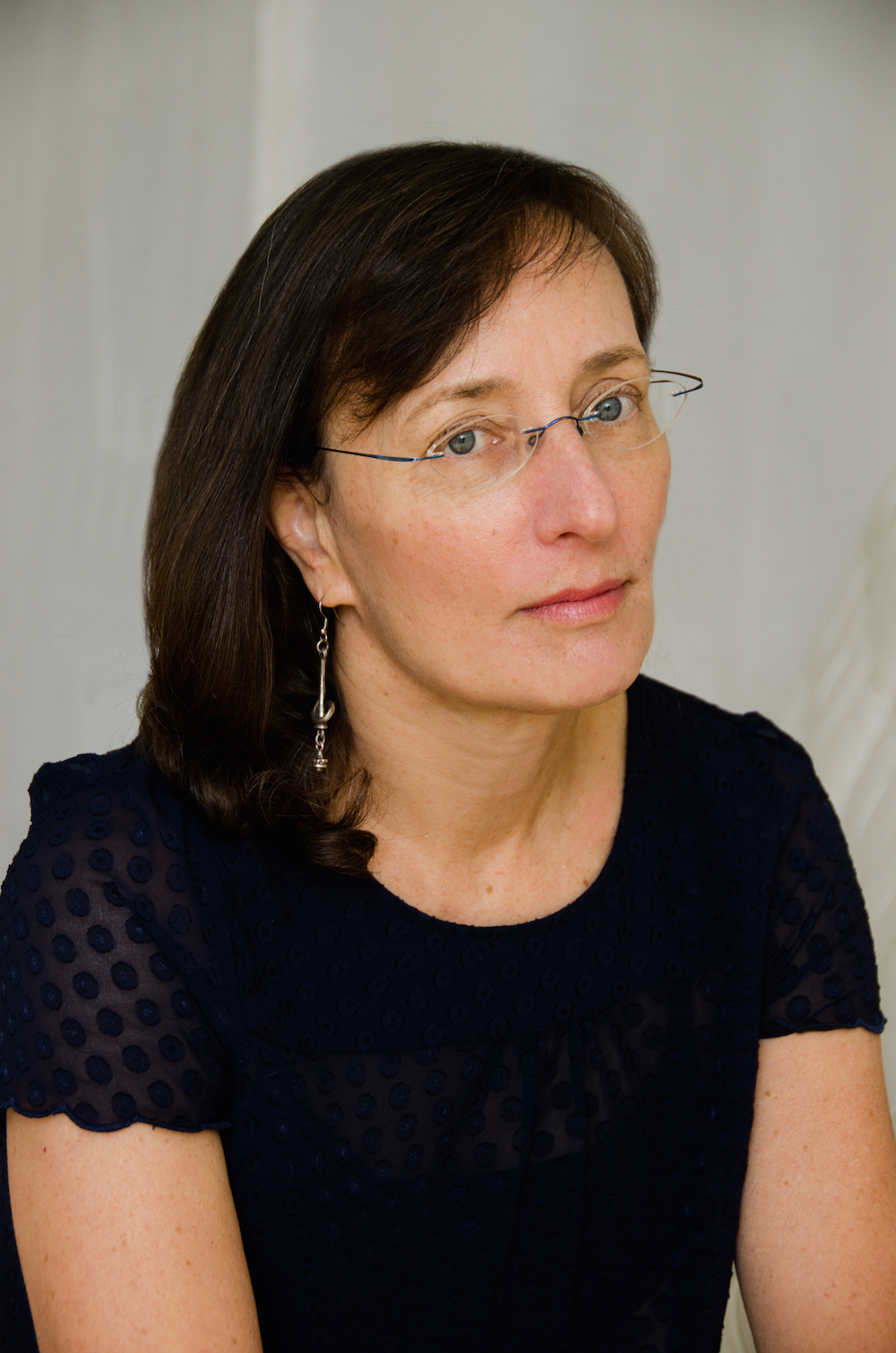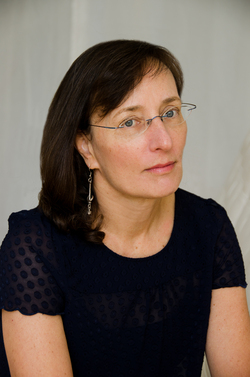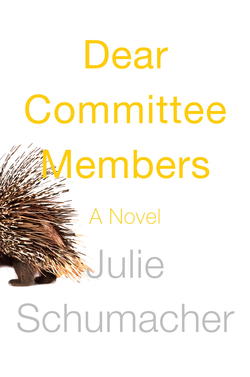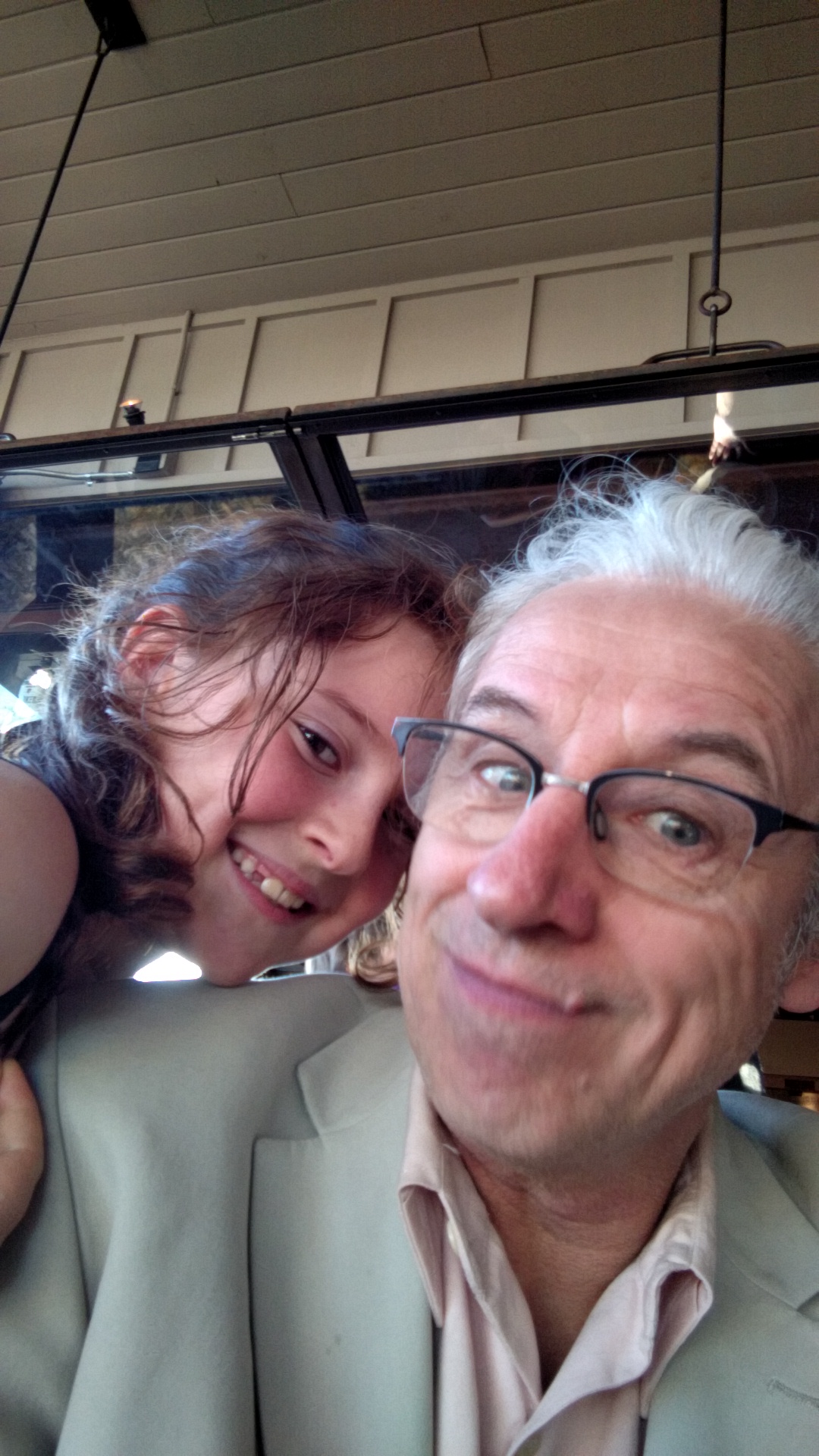I first met Alexandra Lutnick a couple of years ago in the strange little world of sex worker activist/academics. Trust me, it is a very strange little world. She had such interesting things to say about trafficking, particularly about child sex trafficking. So many people try to help and end up making things worse. Now that her book Domestic Minor Sex Trafficking: Beyond Victims and Villains is out, I thought I’d pick her brain about what is to be done.
To read the full interview on the Huffington Post, click here.
David Henry Sterry: How did you first come up with the idea for writing this book?
Alexandra Lutnick: The foundation of this book is based on a process evaluation of three programs that were funded to work with domestic minor victims of human trafficking. The evaluation was conducted by RTI International and led by Deborah Gibbs. As part of that evaluation, I designed a piece to try to better understand the experiences of young people involved in the sex industry. I was frustrated by what I was seeing in the media where it was only the story of young girls who were forced to sell sex. I knew from my previous research that the story was not that simple and wanted to better represent that diversity. To accomplish that, we conducted case history interviews with case managers as part of the process evaluation. During these interviews, case managers would share the story of specific young people who were receiving services from their agency. At subsequent visits, they would give us updates about those young people. This allowed me to better understand how and why young people become involved in trading sex, the role that other people play in this, and the challenges of meeting these young people’s needs.
I wanted to write something that challenges the prioritization of the narrative of young girls forced into this against their wills. I am not arguing that youth are not forced into trading sex. Some are. For some it is force by another person, for others it is force that results from limited or no options. Instead what I wanted to reveal was how this issue of young people involved in the sex trade is a much more complicated issue with a diversity of young people involved for a variety of reasons. For us to really be able to respond to this issue, we need to take into account that diversity. It is only when we do that that we will be able to develop programmatic and policy responses that will effectively meet their needs.
DHS: What were some of the perils and joys of researching and putting this book together?
AL: One of the unexpected perils of this process was that it was intertwined with the death of my parents. Right before I started the research in 2010, my father died. Two months before I got the book deal in 2013, my mom died. It is understandable that when I think about the process of putting this book together that I think of them.
Another challenge for me was my particular style of writing and organization. My method is that I get everything in order and then I sit down and write until the product is done. What that means for this book is that I wrote the first draft of the manuscript in 30 days. This isn’t the easiest content to spend a lot of time with, and by the end of that 30-day period, I was physically and emotionally exhausted.
Fortunately along with those emotional challenges, I have also experienced lots of joy. I am very fortunate to be part of a community of people who identify as people who have experienced trafficking, survivors, sex workers, scholars, activists, academics, service providers, or some combination of these various identities. Interacting with, learning from, and feeling supported by these various people while researching and writing the book was such a gift. Being able to present a more nuanced perspective of this issue and highlight the work of some amazing individuals and organizations has been an honor. Some of the organizations represented in the book, as well as other people working on this issue, have reached out to let me know what a valuable resource my book is for them. It is truly affirming to hear from them that they feel like I captured the reality of this group of young people and the challenges they face. I am also encouraged by some of the feedback I’ve received that the book is expanding people’s understanding and influencing how they think about program and policy development.
DHS: What are some of the misconceptions that people have about domestic sex trafficking as it pertains to minors?
AL: Unfortunately, misconceptions dominate the discussions about domestic minor sex trafficking. From the number of young people involved, to the average age of entry, to whether the young person has a third party, this issue is plagued by bad or misrepresented data.
The dominant narrative about pimp-controlled youth is also a misconception. Mainstream narratives would have us believe that all young people who trade sex are controlled by a third party. The reality is that third-party involvement all depends on the sample of young people. Some studies have found it to be as low as 0% (among street-based, young transgender women), and some have found it to be as high as 57% (among minors arrested for prostitution). The dominant narrative results in outrage and indignation directed at third parties instead of in a questioning of the structural factors that are the antecedents to such involvement. The lack of ambiguity in the way these relationships are presented by the media and the “victim industry” leads to overly simplistic ideas about young people’s involvement in trading sex and positions them as one-dimensional characters who are victims and need rescuing. It obscures the reality that for some young people, the third party involved is a friend or peer helping them survive, and for some it is a parent or guardian who is making them trade sex as a continuation of the abuse they perpetrate. It also fails to recognize the ways in which third-party involvement can and does change over time.
DHS: What can the average citizen do to help this terrible problem?
AL: That is a great question. I encourage people to critically engage with the information they get about this issue. The more we understand the complexities and nuances, the better equipped we will be to appropriately respond.
To that end, I would like to see the average citizen read the fine print on any ballot propositions and pieces of legislation. The reality is that no one is for human trafficking. No one wants to see people being exploited and having their rights violated. Unfortunately, most anti-trafficking propositions and legislation contain aspects that will create collateral consequences for the very people they purport to protect. We need to know those details, help educate others and pressure our representative to remove those components.
We can encourage our representatives to introduce and pass legislation that will prevent young people from being arrested for prostitution-related offenses, as well as allow them to vacate any prior convictions for offenses committed while being trafficked. It is logically inconsistent to say these young people are victims of a crime and then treat them like criminals. It is also misguided to support the “arresting them for their own good” approach. No better way exists to limit a young person’s ability to thrive than saddling them with convictions.
As citizens, we also need to work to address the vulnerabilities that racism, classism, homophobia, transphobia, poverty, and generational abuse and trauma create. I know that a lot of people are eager to do work around trafficking, or volunteer with anti-trafficking organizations. I encourage you to think about how you can direct your efforts at addressing the macro-level issues that create vulnerabilities for our young people. Without a functioning system to support them, young people find that to meet their needs, their best, only, or least-worst option is to trade sex.
DHS: What do you want people to take away from reading your book?
AL: The aim of the book is to move past homogenous representations of this group of young people. By expanding the narrative beyond simplistic ac¬counts of victims and villains, I am hoping that readers will gain a more nuanced understanding of both this social issue and the young people involved.
Many different routes and motivations lead young people to trade sex, and the structural factors and inequalities that precede their involvement need to be examined. Relying on the victim-villain narrative has prevented us from examining the structural factors and social forces that produce and maintain young people’s vulnerability. To develop and implement effective policies and programs, we must be willing to acknowledge the diversity of youth who trade sex, explore the ways in which our constructions of childhood and victimhood may contribute to the social marginalization of young people, and assess what we as a community can do to offer alternatives so that youth do not feel that sex trades are the only way they can meet their needs and wants.
I want readers to see how the prioritized approach of trying to get “the bad guys” has not brought about significant improvements for the young people these legal responses purportedly aim to protect. If we continue to prioritize the one narrative of young cisgender girls forced into this by pimps/traffickers, our programs and policies are going to continue to fail to meet the needs of this population. For example, if a young person is homeless, they need a way to survive. Trading sex becomes a way to survive. Making penalties higher for third parties or clients does nothing to address why trading sex is their only, least worst, or best option.
DHS: Tell us about your road to publication.
AL: I was fortunate to be in the right place at the right time. I presented some of my dissertation research related to this at the annual meeting of the Society of Social Work and Research in 2013. Unbeknownst to me, Jennifer Perillo, an editor from Columbia University Press was at my session. She approached me afterwards and asked if I had thought about turning my dissertation into a book. I acknowledged that I hadn’t, but would be open to that possibility. We scheduled a call for after the conference to talk through what that would look like. Based on our conversation, we were both really excited about the possibility and I submitted a proposal. Columbia University Press then sent it out for a number of peer reviews and then approved the proposal. After I submitted the manuscript, it was sent back out for peer review, and then for approval from the editorial and faculty boards at Columbia University. Three years after that first meeting at the conference, my book was published. It was such a great experience working with Jennifer and all the great folks at Columbia University Press.
DHS: What part does law enforcement have in enabling or preventing sex trafficking?
AL: At the federal level any young person involved in commercial sex acts is considered a victim of a severe form of human trafficking. Because prostitution laws are regulated by states, it is not uncommon to have young people being arrested for prostitution-related offenses.
Unfortunately, because their behavior is criminalized and because many of these young people report having experience abuse perpetrated by police officers, they largely do not think of law enforcement as a safety option. To address the ten¬sion that currently exists between viewing them as victims and treating them as criminals, all states need to incorporate a minimum age into their laws whereby no one younger than 18 can be charged for prostitution-related offenses. Decriminalization is the only way to ensure that young people are not arrested or detained for prostitution-related offenses. It is unacceptable that we have more young women being arrested for prostitution-related offenses now compared to right before the TVPA (Trafficking Victims Protection Act) was passed in 2000.
The call for decriminalization of young people involved in prostitution is supported by a number of entities. The American Bar Association’s Child Trafficking Policy is in agreement that it should be prohibited to arrest or charge young people with the crimes of prostitution, solicitation, or loitering as well as other offenses, including status offenses that are incident to their trafficking situation. It is also supported by the International Committee on the Rights of the Child in their 2013 criticism of the U.S. government for continuing to criminalize people younger than 18 who trade sex. In the guidance for a model state statute, Section 1243 of the TVPRA of 2013 includes not charging or prosecuting young people for prostitution offenses.
In addition to decriminalizing young people’s involvement in trading sex, future work needs to examine the ways in which decriminalizing or legalizing adult prostitution may have an impact on young people’s involvement in sex trades. Decriminalization is supported by entities such as Amnesty International, UNAIDS, the World Health Organization, the Open Society Foundations, and the Global Commission on HIV and the Law. It is possible that if a system for adults to procure sex were formalized through decriminalization or legalization, opportunistic clients would no longer have a need to purchase sex from young people. Similarly, removing criminal statutes against all individuals who sell and purchase sex may create an environment where they could report to law enforcement officials without fear of legal consequences any situations where people are being exploited in the sex industry.
We cannot legislate our way out of this social issue. As long as the needs of law enforcement and prosecution are prioritized over the needs of young people, we will continue to fail to meet their needs. The legislation that increases penalties for solicitation of minors does not grant youth social and economic power and does not acknowledge their needs and desires. Without this power, young people are still at risk for becoming involved in sex trades regardless of the increased penalties for third parties and clients.
DHS: I’m always so completely skeptical about any statistics I read from people doing work in the illegal underground sex world. Can you help us know what to believe and what not to believe?
AL: I am so glad to hear you say that. I wish more people questioned the statistics that are presented.
In the world of research, we consider people involved in the sex industry a hidden population. The reason for this is because the size of group membership is unknown. This makes it particularly difficult to obtain a random sample because a full listing of all those involved does not exist. An additional complication is that young people have many good reasons for not acknowledging their involvement, such as concerns about being judged, stigmatized, or arrested. What this means, and what is important to your question, is that we do not have representative data about this group of young people. Instead, we have data specific to a certain sample or sub-group (such as child welfare involved). Those data are from a convenience sample so they cannot be generalizable beyond that sample.
Unfortunately, the misuse of data related to young people involved in the sex industry is rampant. For example, in a review of forty-two published books about human trafficking, Lisa Fedina found that 78% of the books cited prevalence data from at least one flawed source. This misuse of data is also easily found in newspaper articles, news shows, documentaries, journal articles, activist claims, organizational literature, political speeches, and governmental hearings. To rely on unsupported estimates is a disservice to knowledge building and shifts the attention away from the social factors that create vulnerabilities among youth. The goal of research is to produce valid knowledge about a particular group and a reliable picture of their social reality. When the limitations of data are not acknowledged, it misguides service providers and policy makers about the needs of populations.
My suggestion is to be a critical consumer of information. Before you start using a statistic, trace it back to its source and look to see how the data was collected. You will want to pay particular attention to the sampling methods use, the phrasing of questions, and if the data is about outcomes (like rates of mental health issues, substance use, abuse), whether a comparison group was part of the research.
DHS: Why do we continue to have this problem in what we ourselves consider to be a civilized country?
AL: We need to move toward an empowerment, anti-oppression model of program and policy development and service delivery. These young people are resourceful and resilient, and they are the experts about their lives. Programs need to be committed to creating opportunities for young people to develop and enhance their skills so they are able to take on additional leadership roles within and beyond the organization. Funding and delivering formal leadership programs for these young people are crucial. I have sat through far too many meetings, conferences, presentations, and policy planning sessions about this issue where no young people are present or in positions of leadership. Often times when I ask where they are, the answer is that it is not convenient to meet when youth are available (meaning outside of normal business hours) and that people believe young people would not be comfortable at these types of gatherings. That needs to change.
Young people need social and economic power as well as the ability to have their choices about living situations, service needs, and sexuality respected. Unfortunately, the United States is one of only three countries that has not ratified the United Nations Convention on the Rights of the Child. If as a nation we ratify the Convention on the Rights of the Child, we would be obligated to listen to young people and take seriously their opinions. We also would be required to ensure that young people have access to health care, education, and social benefits either indirectly through their guardians or directly.
As a country, we have been dealing with young people involved in the sex industry for a long time. Over the course of time, we have used different terms to describe this social issue, but the issue remains. The unfortunate reality is we have not made much progress in truly addressing the root causes of this social issue. Without addressing structural inequalities and other factors that create vulnerabilities, we will continue to struggle to meet the needs of these young people. If young people’s basic human rights are met, if they have stable and safe housing, employment or another source of income, health care, access to education and welfare benefits, and supportive networks (familial or social), those who really do not want to be trading sex will have other options.
Dr. Alexandra Lutnick is a senior research scientist for the Behavioral and Urban Health Program at RTI International, one of the world’s leading research institutes. She also serves as an Adjunct Professor in the Department of Social Welfare at the University of California, Berkeley. Some of her current work involves a National Institute of Justice funded peer-based evaluation of the anti-trafficking task force in San Francisco.
Dr. Lutnick has authored and coauthored publications for numerous publications, including the Journal of Urban Health, Children and Youth Services Review, Journal of Social Work Practice in the Addictions, American Journal of Epidemiology, Reproductive Health Matters, and Sexually Transmitted Infections. She has been an invited speaker about sex work and also trafficking for many conferences, including the Freedom Network Annual Conference, the National Harm Reduction Conference, the Society for Social Work and Research Annual Meeting, and the International AIDS Conference. Her book Domestic Minor Sex Trafficking: Beyond Victims and Villains was published in early 2016 by Columbia University Press.

